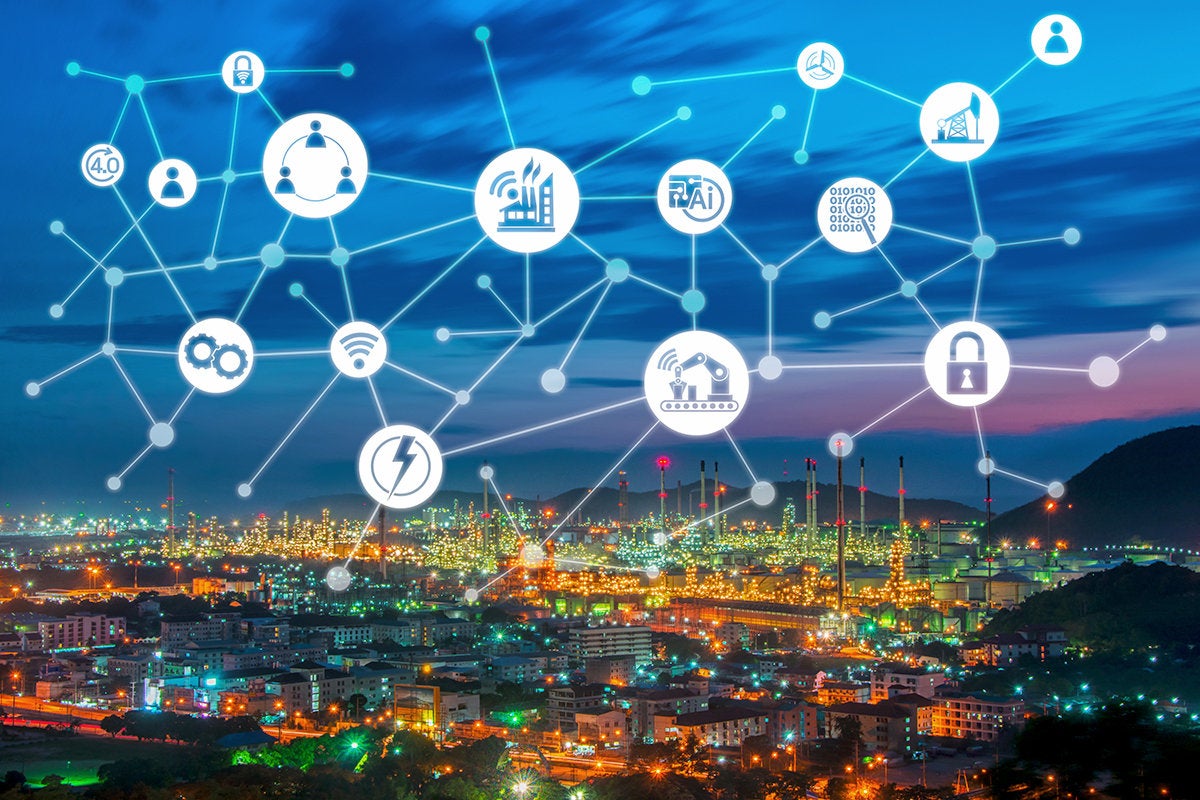
Telecommunications equipment maker Nokia has launched a turnkey, sensor-as-a-service offering for Internet of Things (IoT) networks.
The idea behind the product is to provide a way for mobile network operators (MNOs), many of which use Nokia cell site equipment, to monetize existing infrastructure, such as towers, by selling live environmental sensor data to cities and others.
MNOs increasingly are looking for new revenue sources as consumer smartphone growth plateaus. And cities need to adopt digital strategies to manage assets, increase efficiencies, and keep stakeholders happy. For example, they need granular real-time data about public transportation flow and air quality to ensure they comply with regulations—that the traffic is flowing and no illegal garbage is burning.
Nokia, which announced Sensing as a Service to coincide with Mobile World Congress taking place in Barcelona next week, says its product will achieve that.
"Cities need to become digital in order to efficiently deliver services to their habitants,” says Asad Rizvi, head of global services business development at Nokia, in a press release. “In addition, we can help [mobile network] operators generate new revenue.”
Blockchain used for billing/payment
Ingeniously, the offering includes a blockchain smart-contract element, which the Finnish company says will allow MNOs to bill smart city governments for processed and analyzed data. Smart contracts are mechanisms that automatically transfer funds, including micro-payments, between parties when certain conditions are met. They use blockchain decentralized ledgers.
Enterprises need IoT skills
Sensor-as-a-service may gain momentum. That's because IoT strategy adoption can be a stumbling block for enterprises overall due to insufficient internal resources.
Vodafone, in a recent IoT Barometer study, says 10 percent of businesses don’t think they have the right skills. And 75 percent of IoT adopters have expanded their use of collaborators to get and run IoT-based solutions.
“They’re looking to partners and collaborations to fill their skill gaps,” says Vodafone, which also supplies telecommuncations—in its case, networks.
IoT data for smart cities
In the case of Nokia’s sensor-as-a-service offering, which it alternately calls IoT for Smart Cities, the company says parking, trash management, environmental sensing, smarter lighting, and security (e.g., video surveillance) are primary commodities that MNOs can offer municipalities. They use existing base station sites, also known as towers.
Enterprises may also want access to that kind of data, Nokia says. That could include weather forecasting operations, healthcare and insurance. Smart cars and drones will also require better municipal data, the company says.
There’s minimal capital expense, and the blockchain “anonymized, private and secure micro-transactions” pays the MNO from the city coffers. Nokia, not the MNO, performs all of the edge gateway and sensor installation. Data is stored on Microsoft Azure, Amazon Web Services (AWS), or a private cloud. The Nokia AVA platform or a choice of Amazon IoT or Microsoft IoT performs the data transfer.
“Currently, when most [mobile network] operators are considering their data, they only think about telecommunications data,” Nokia says in a brochure. “Only by branching out and collecting additional data sources can you truly deliver a compelling data service or product that generates revenue.”
In other words, tracking consumers as they wander a contracting retail environment and selling that data to marketers, called telco-data-as-a-service (TDaaS), is conceivably just the beginning of data monetization possible for telcos.
https://www.networkworld.com
No comments:
Post a Comment